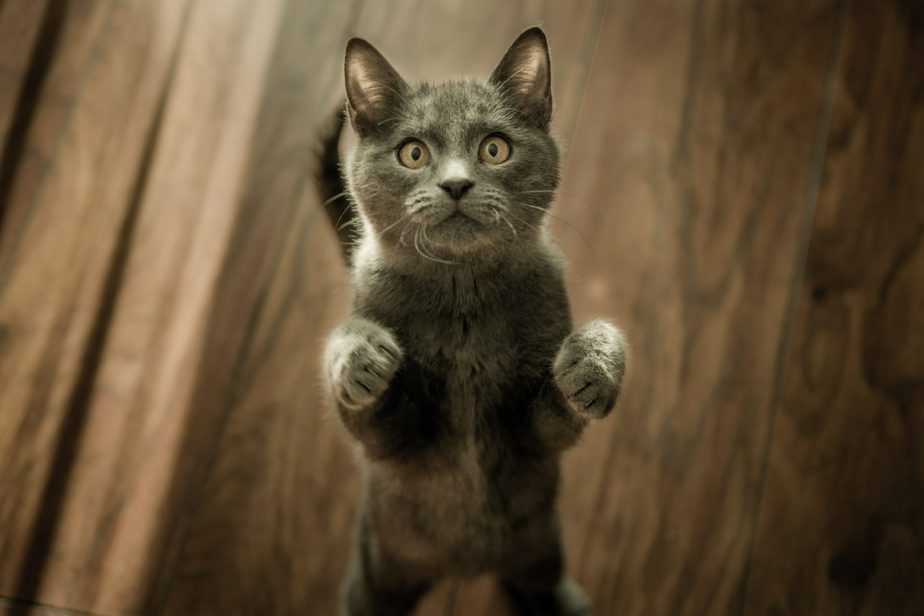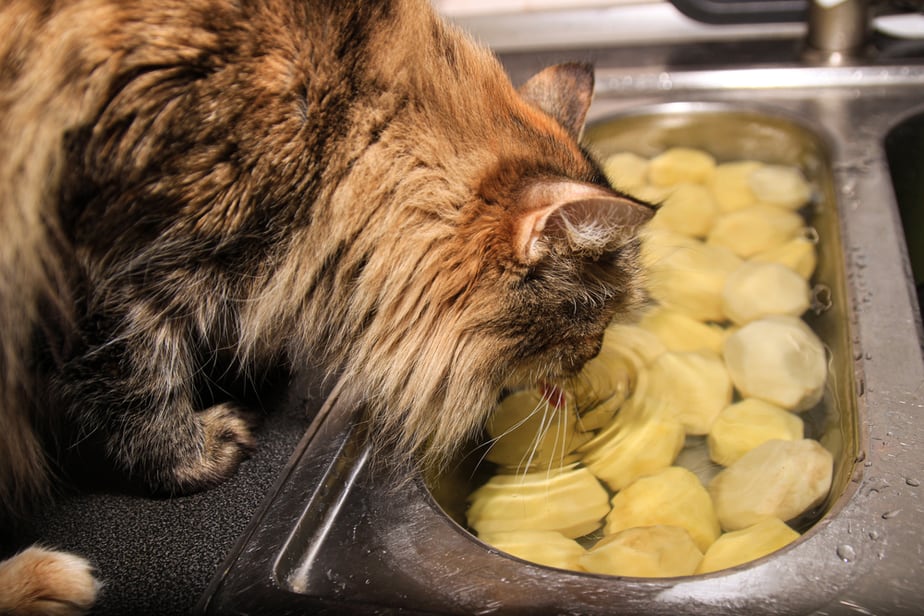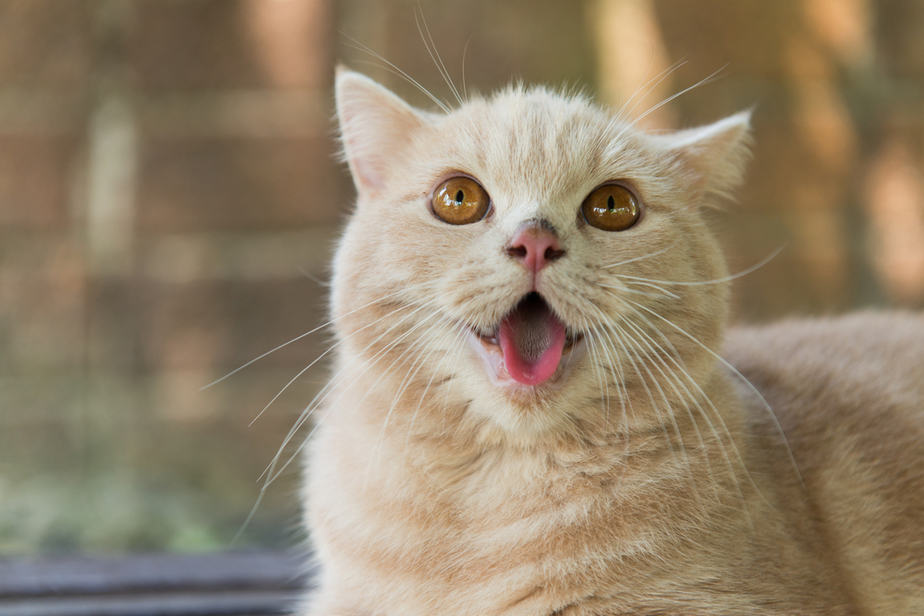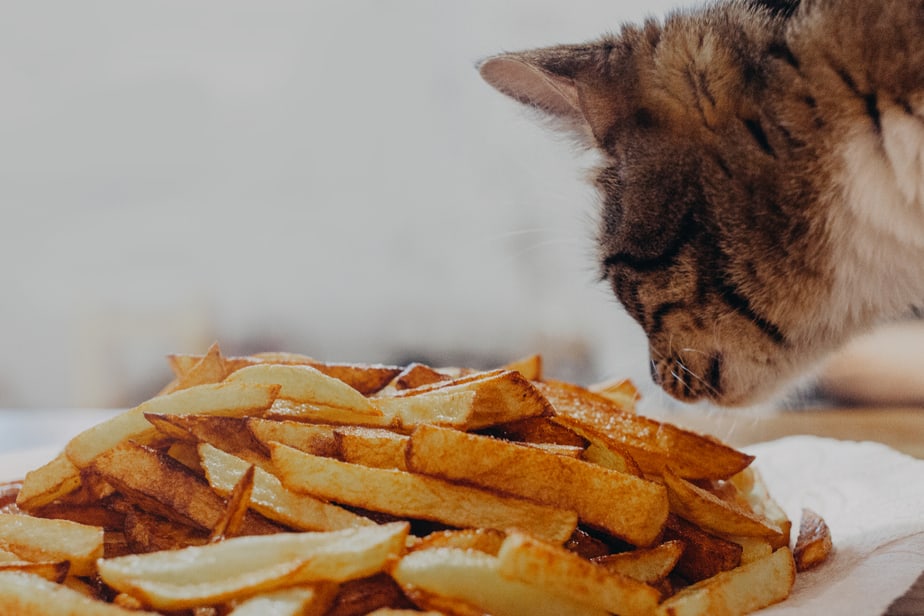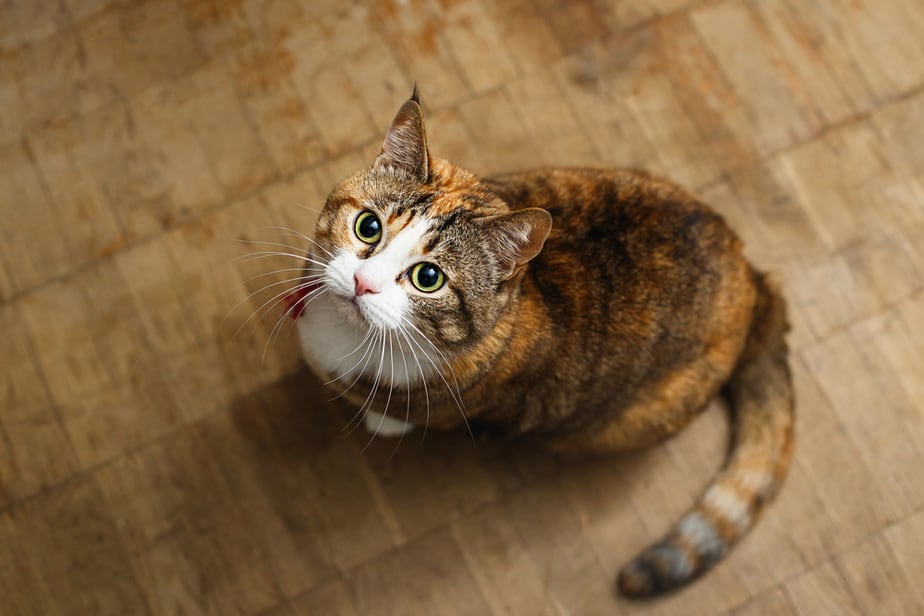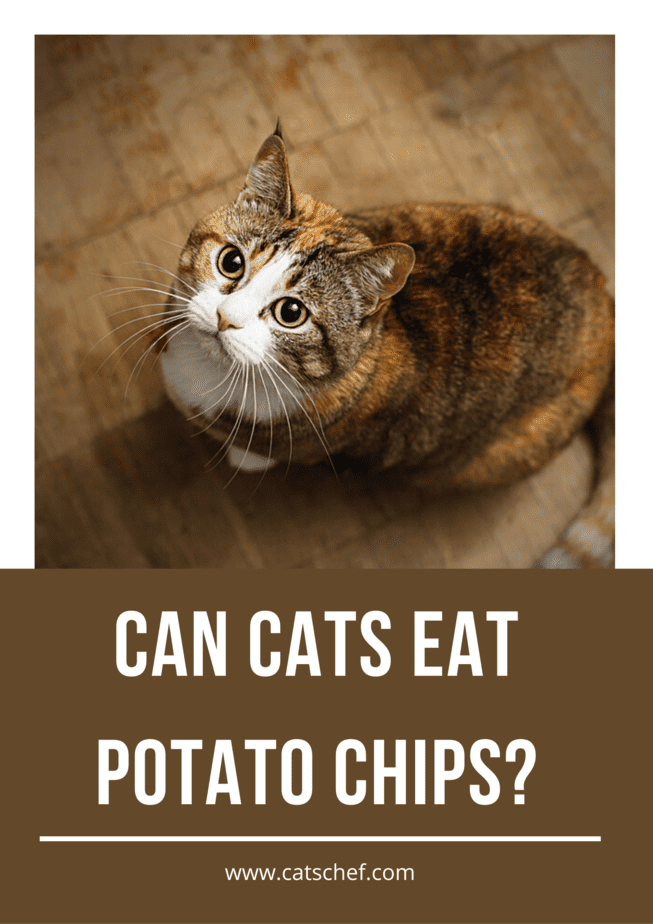📖 Table of Content:
“Can cats eat potato chips?” It’s the question many pet owners want to get an answer to.
This snack appears to be harmless at first sight. In many cases, these salted chips appear to be a technique to relieve boredom. Does this imply that cats can do the same by munching on potato chips?
This may seem like a no-brainer, but we’re happy to explain why. Potato chips are not safe for your cat, and the reason behind it lies in all the spices contained in just one bag of these salty snacks.
Are potato chips bad for cats?
Although sometimes we know it’s not very healthy, we can’t control ourselves with a bag of chips. Cats are smart little creatures, but sometimes they can have a hard time debating what’s best for them. That’s why we as cat owners have to provide them with the best possible care.
Potato chips aren’t the best dietary choice when it comes to your furchild. Still, they’re so darn tempting, especially when you’re watching your favorite TV show. What makes you think your cat won’t try to steal some?
What are chips made of?
As the name says for itself, these snacks are made of potatoes and other ingredients like salt. However, they go through a long process of preparation before being stacked on the shelves of your local supermarket.
These processes include baking or deep-frying, which requires large quantities of oil. Then, a whole bunch of other artificial and natural flavors, additives, and spices are all added to make the different flavors of chips we know and love today.
Can cats eat potatoes?
Boiled or baked potatoes can be a treat for your cat, on the odd occasion. Even quick mashed potatoes are safe for cats to eat. Your four-legged friend won’t be poisoned by potatoes if they are cooked.
A word of caution, however. Potatoes contain alkaloids that are harmful to your feline’s health in large amounts. All members of the nightshade family (such as eggplants, tomatoes, and potatoes) contain one alkaloid in particular: solanine. Solanine poisoning affects felines the same way it affects humans.
Be sure to therefore stay away from raw potatoes, as well green potato peels, as these parts of the potato contain higher levels of solanine.
Salt content in potato chips
“Can cats eat potato chips due to a high salt content in them?”
Salt is probably the next thing on most owners’ minds when it comes to potato chips. The salt in these snacks, as well as their crunchy form, are what distinguishes them.
You may have observed that cats lick your skin after you have sweated or cried. That’s because the salty flavor appeals to them. While excessive salt consumption might be dangerous, little amounts can boost your cat’s thirst for water.
While cats require a minimal amount of sodium on a daily basis to keep their bodies healthy, keep a watch out for sodium poisoning in your cat.
If your pet exhibits any of the clinical indications of salt toxicity, such as excessive thirst and urination, incoordination, tremors, or seizures, you may be sure she’s suffering from it. In that case, we urge you to take your pet to the veterinarian right away.
What about other spices?
Cats may benefit from the use of some herbs and spices. On the other hand, consuming these daily can be harmful to your cat’s health. There may be some gastrointestinal issues, with the most common symptoms being vomiting, diarrhea, and stomach pain.
Because felines have a higher sense of smell than humans, some spices, such as black pepper, can function as a deterrent. They’re frequently used as a cat repellent to keep cats away from your garden and indoor plants.
Oil
Oils aren’t dangerous to cats, but they’re also not helpful. It will most likely be difficult for your cat to digest.
If you absolutely must use oil, choose extra virgin olive oil. This is the least likely to upset your cat’s stomach. If you believe she’s had too much, watch out for any signs of stomach distress.
Natural and artificial flavors in snacks
Your cat’s diet doesn’t include natural or artificial tastes. And she won’t gain any benefits from food that isn’t digestible by carnivores. Artificial flavors might cause health problems and tooth decay.
Can cats eat potato chips because of saturated fats?
For felines, fat can be thought of as a concentrated energy source. Furthermore, fat can provide twice the amount of energy as protein and carbohydrates. Foods that are heavy in fat will tempt cats. And this may be one of the reasons your cat is eyeing the chips in your bowl.
Potato chips, on the other hand, are a junk snack high in saturated, processed fat. Furthermore, high blood cholesterol levels, heart disease, and obesity have all been related to potato chips.
Potato chips have no nutritional value
Even though they are a tempting and delicious snack, it’s best to refrain from feeding potato chips to your cat. They hold no nutritional value and are an unnecessary part of your cat’s diet.
Sure, a few plain, unseasoned chips from time to time isn’t likely to hurt your cat. But keep in mind your feline is a carnivore – she needs meat to survive.
Chips don’t contain protein or other nutrients needed for her development and overall growth. Moreover, potato chips are calorie-dense, which means an overabundance of calories can be stored as excess fat. Your cat’s joints won’t appreciate the extra pounds, and moving around will be a lot harder for her.
Can cats eat cheese and sour cream chips?
Cheese and sour cream are both dairy products, which means they contain lactose. The problem with this is that cats are lactose intolerant, a condition where the body is unable to break down the sugar in dairy products.
Felines lack specific intestinal enzymes (lactase) that would aid in the digestion of lactose, which might lead to stomach distress, diarrhea, and vomiting.
Moreover, the fat content of cheese is higher than that of other dairy products. Fat is a vital component of a cat’s diet, thus it must be consumed on a daily basis. However, the type of fat found in cheese isn’t well suited for their requirements. Unsaturated fat is required by felines as an energy source.
Another component present in potato chips is sour cream. As with cheese and cream cheese, sour cream is also a dairy product. You may probably imagine some of the implications of feeding your cat sour cream now that you know cats are lactose intolerant.
Strictly speaking, sour cream and cheese aren’t poisonous to cats. But they don’t bring any benefit either, as they are not part of a feline’s natural diet. Wherever possible, don’t allow your cat to eat sour cream or cream cheese potato chips.
Ketchup-flavored potato chips
Ketchup-flavored potato chips are also among the most popular flavors. The chemicals in ketchup are the major reason your feline companion should avoid it. Tomato ketchup contains ingredients including tomato, garlic, onion, vinegar, sugar, salt, and a slew of others that aren’t good for your cat.
Tomatoes are good for people because they are high in vitamins and fiber, but they aren’t beneficial to cats. Your kitty friend does require these nutrients, but not from tomatoes!
Onion and garlic snacks
Garlic is one of the big feline no-nos. Garlic is strictly off limits for cats, despite its widespread use in human cuisine. This ingredient includes chemicals that are poisonous to felines and can cause red blood cell destruction.
Although garlic is five times more pungent than onions, it doesn’t mean onions shouldn’t be avoided. Onions can also cause serious health problems for your cat by destroying red blood cells and causing various types of anemia.
We can conclude that garlic and onion, in any form, are a serious health risk to your cat. Whether powdered, cooked, raw, your cat is better off without them. Skip these flavors and, if you must, just treat your cat to a nibble of plain chips.
Final thoughts on cats eating potato chips
So, can cats eat potato chips? What’s the final verdict.
Potato chips are permissible for cats, however, they aren’t required or recommended. Felines are carnivores, and while they can consume plant-based foods, they won’t benefit from them.
These crunchy nibbles are a fun way to pass time while hanging out with your lap monster. However, only feed your cat chips on rare occasions – moderation is crucial.
Potato chips, just like pretzels, have a lot of spices and flavors in them that aren’t good for your pet. If consumed over an extended period, these can do more harm than good.
Cheese, onion, and ketchup are all flavors to avoid. These compounds are harmful to cats, and some of them are deadly. So, the next time you go out to the store, rather opt for plain potato chips.
